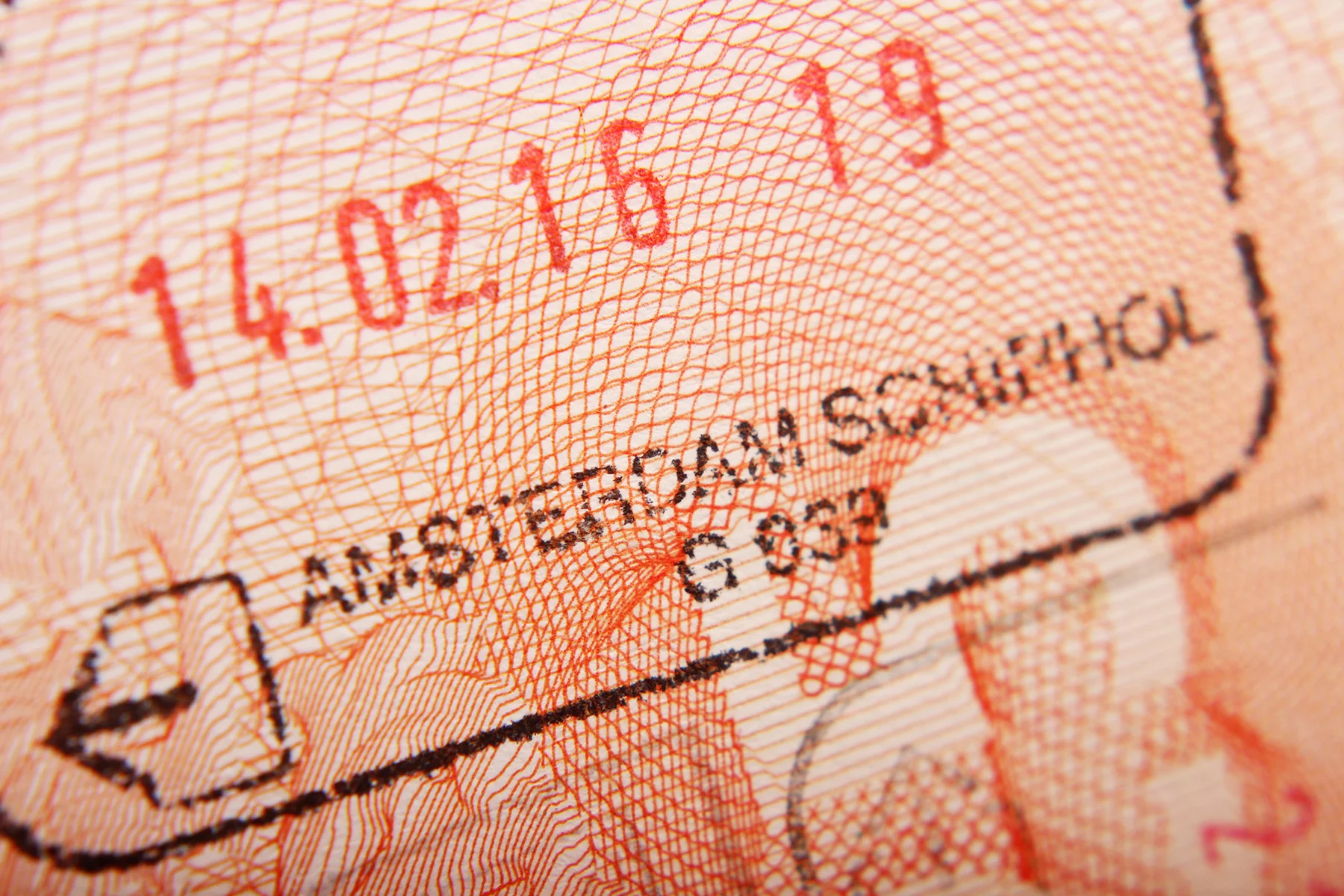For internationals embarking on an entrepreneurial journey in the Netherlands, the prospects are very promising. Setting up your own company is straightforward, and the Dutch government offers a range of choices in terms of legal business type and structure. However, it’s helpful to have an understanding of the tax frameworks, visa prerequisites, accounting protocols, and Dutch workplace culture before you decide to start a business in the Netherlands.
Below, you’ll find detailed sections covering:
- Dutch business culture
- Who can start a business in the Netherlands?
- Legal structures for businesses in the Netherlands
- How does an expat start a business in the Netherlands?
- Foreign companies opening a branch or subsidiary in the Netherlands
- Starting a non-profit organization in the Netherlands
- Administrating your business in the Netherlands
- Support and advice for starting a business in the Netherlands
- Useful resources
Projob
Looking to get your business off the ground in the Netherlands? Specialist consultants Projob Company Onboarding can help. Take advantage of their unique start-up process and enjoy the support of a network of local companies from day one. This network can advise you on the Dutch economy and labor market, helping you realize your business dreams.
Dutch business culture
Business culture in the Netherlands reflects many of the characteristics of broader Dutch society. For example, most Dutch workplaces emphasize equality, punctuality, and work-life balance.
Compared to other countries’ business cultures, Dutch companies tend to be less hierarchical and flat. The Dutch are also typically on time for work, especially meetings and interviews.

You’ll find that work-life balance is extremely important for the high quality of life in the Netherlands. Most employed people work around 33 hours per week. Self-employed people, on the other hand, work an average of 45.
Who can start a business in the Netherlands?
Almost anyone can start a business in the Netherlands, but the procedure may differ depending on your nationality and which countries you have qualifications from or other established companies.
EU/EEA/Swiss citizens
EU/EEA/Swiss citizens moving to the Netherlands don’t need to obtain a residence permit (MVV) or work permit (TWV), regardless of the type of business they want to start.
Under certain circumstances, Swiss nationals are classified the same as EU/EEA citizens, and their employers are exempt from requiring a separate Dutch work permit.
A burgerservicenummer (BSN) is usually issued to EU/EEA/Swiss citizens following their registration with the local municipality. The BSN acts as a social security number and a tax number.
Non-EU citizens
Non-EU/EEA/Swiss citizens looking to start a business or become self-employed typically need to follow Dutch immigration procedures and obtain a residence permit (MVV) or a work permit (TWV). A residence permit allows you to live in the Netherlands, while a work permit is necessary if you plan to work for a Dutch employer.
The residence permit for a self-employed person requires proving your business serves an essential Dutch interest and earning a certain number of points in a points-based application. These points are awarded based on factors such as your educational background, business plan, and financial resources.
However, those from the US and Japan are exempt from the points-based system via Friendship Treaties and can follow a less rigorous process.
Legal structures for businesses in the Netherlands
The Netherlands has separate regulations and legal forms for each type of business structure.
Freelancers are typically sole trader/single-person businesses (known as ZZP’ers), whereas larger companies are often considered private limited companies or BVs.

The two most common legal forms (rechtsvormen) are unincorporated business structures and incorporated business structures. The Dutch government offers an online tool to help entrepreneurs determine which legal structure suits their business.
Unincorporated business structures
Unincorporated businesses are known as rechtsvormen zonder rechtspersoonlijkheid (legal forms without incorporation), meaning you are responsible for your business income and potential debt. In other words, there is no distinction between your private and business assets.
The types of unincorporated businesses include:
- Sole trader/proprietorship (eenmanszaak or ZZP, zelfstandige zonder personeel)
- Limited partnership (commanditaire vennootschap or CV)
- General partnership (vennootschap onder firma or VOF)
- Commercial/professional partnership (maatschap)
Becoming a freelancer – or ZZP’er as they are called in the Netherlands – is popular in the country, with over 1.5 million registered freelancers in 2022, according to a report from the Dutch Chamber of Commerce (Kamer van Koophandel, or KVK).
Incorporated business structures
With incorporated businesses, or rechtsvormen met rechtspersoonlijkheid (legal forms with incorporation), you have separate accounts and protection from your business debts.
The different types of incorporated businesses are:
- Private limited company: Ltd. and Inc. (besloten vennootschap or BV)
- Public limited company: Plc. and Corp. (naamloze vennootschap or NV)
- Cooperative (coöperatie)
- Foundation (stichting)
- Association (vereniging)
Legal requirements differ between business structures. A single-person business, for example, can be set up without notarized documents (although company registration is still mandatory). In contrast, a larger company (BV or NV) requires a notarial deed of incorporation.

BVs and NVs also have shareholders, and NVs require a minimum initial business capital of €45,000. The capital requirement was abolished for BVs in 2012, although start-up costs are estimated at around €1,500–2,500 and higher, depending on the business structure and size.
The main difference between partnership structures is that a professional partnership (maatschap) is a form of cooperation between professionals rather than collaboration to do business (like CVs or VOFs). For example, if you and a friend are starting a baking company, you would consider a commercial/professional partnership (maatschap).
How does an expat start a business in the Netherlands?
Starting a business in the Netherlands begins with deciding on the name. You must choose a name for your business even if you are a sole freelancer – some use their own name, but some come up with one to describe the company. Regardless, your business’ name must be unique.
To check existing registered trademarks, contact the Benelux Office for Intellectual Property (BOIP or Benelux-Merkenbureau) or search the Dutch Chamber of Commerce (in Dutch).
Obtain a Dutch business visa
The start-up visa in the Netherlands allows non-EU citizens to set up a company in the Netherlands with the hopes of a successful, lucrative business. This visa gives international entrepreneurs a year to launch their businesses, allowing expats to learn the Dutch business environment, grow their client base, and so on.
The start-up visa has various requirements, such as working with an experienced Netherlands-based mentor and providing a detailed business plan.
Register at the IND
Citizens from EU/EEA countries must register at the Dutch Immigration and Naturalisation Service (Immigratie en Naturalisatiedienst or IND). They will issue special ‘Burger van de Unie’ stamps in their passports. You can contact the IND for more information on the conditions.
All other expats registering a new business in the Netherlands will automatically receive a VAT number (BTW nummer) and a letter from the Dutch tax office. You will need this number when issuing invoices and purchasing goods for your business.
Register at the Dutch Chamber of Commerce (KVK)
To officially open a business in the Netherlands, you’ll need to visit the KVK. You can make an appointment online and fill out a registration form prior to the appointment. Although the form must be written in Dutch, the Chamber of Commerce provides English translations of all business registration forms.

You’ll need to bring around €50 for the registration fee, a valid form of identification (residence permit, Dutch driving license, or passport), and a business name, as well as proof of knowledge/certification of what type of business you intend to register.
Depending on the type of business, you may also be asked to show:
- A detailed business plan
- A recent bank statement (less than 30 days old)
- For home offices, a proof of your home address
- A rental contract (or official letter of intent) if hiring a premises
Most solo freelancers opt for an unincorporated business structure (eenmanszaak), but as there are many different legal forms of businesses in the Netherlands, it’s important to know which is right for you.
Once your registration is approved, you will be given a unique company registration number (your KVK number).
Obtain any necessary licenses or permits
Certain professions and industries operating in the Netherlands require the business owner to have a separate license or permit. These are known as regulated professions across the EU, EEA, UK, and Switzerland.
The Dutch government provides a list of 51 professions regulated in the Netherlands that impact public order or public health. If you work as one of these listed professions and your qualifications come from a non-EU country, you must apply for recognition by the appropriate authority in the Netherlands before you can start working.
Foreign companies opening a branch or subsidiary in the Netherlands
If you are considering setting up a foreign entity or branch of another company in the Netherlands, what rules you need to follow depend on the structure of your business.
You need to determine whether or not your company is considered a ‘permanent’ or ‘non-permanent’ establishment for the purposes of business classification.
Foreign businesses are generally recognized in the Netherlands, with the exception of sole proprietorships. If you’d like to operate a sole proprietorship in the Netherlands, you’d have to transfer it by registering with the KVK and possibly creating a different type of business structure.
The options for recognized foreign businesses that can operate in the Netherlands include branch offices and representative offices.
Starting a non-profit organization in the Netherlands
Non-profit organizations, also known as NGOs, are legally referred to as either associations or foundations in the Netherlands. Associations and foundations both organize social activities for the benefit of a particular community or group without making a profit.

Whether you’d like to establish an association or a foundation depends on the type of activities you plan to undertake as well as how you prefer your organization to be governed.
Associations
All associations must have at least two members with equal voting power and authority. Associations make decisions during members’ meetings and put matters to a vote. While you don’t need starting capital, there are annual administrative costs to running an association.
There are two types of associations:
- Association with Full Legal Capacity (volledige rechtsbevoegdheid): has the same rights and duties as a member of the public, and must set up with the Business Register
- Association with Limited Legal Capacity (beperkte rechtsbevoegdheid): both the association and the members are privately liable, which means you do not need to set up with the Business Register
Foundations
Foundations generally aim to raise money to support a social cause. Since they have no members, all decisions are made through a board of directors. All foundations must sign on to the Business Register.
Administrating your business in the Netherlands
As a business owner, it’s vital to keep up with all aspects of your business’ administration in the Netherlands. This includes invoices, bank statements, contracts, and business expenses, as required by the Dutch tax authority. Invoices require a certain format and must contain specific information.
A legal invoice (factuur), for example, must include:
- Date of invoice and a unique sequential number
- Date of delivery, service, or when a payment was made (if different from the invoice date)
- Your client’s name and address
- KVK number
- Your VAT number and amount of payable tax
- If applicable, the nature and quantity of goods or services (excluding VAT)
Taking out business insurance
As a self-employed worker, you are responsible for your pension and all business and personal insurance. Various types of personal and professional insurance need to be considered. These include Dutch health insurance, unemployment insurance, and business liability insurance. The latter is sometimes required by clients, especially when working through recruitment agencies.
Dutch corporate and income taxes
Sole proprietors (ZZP’ers) and companies must pay corporate income tax in the Netherlands. According to the Ministry of Finance, “Natural persons (such as the self-employed) pay tax on their profits through their personal income tax returns.”

Self-employed workers in the Netherlands are responsible for registering their business with the Dutch tax authority (Belastingdienst) and submitting their tax returns. Corporate taxes in the Netherlands can seem complicated for the self-employed. They must file income tax annually, and value-added tax (BTW), or turnover tax, quarterly.
Self-employed workers must pay annual income tax and file a tax return declaring all taxable income from the year.
Taxable income is the total amount of income that is subject to tax, including business profits (revenue minus any deductible expenses, such as equipment, travel, and materials), salary from employment contracts, and freelancing as a secondary activity.
To offset some of the costs of starting a business in the Netherlands, the country allows private entrepreneurs several extra tax deductions: the entrepreneur allowance (ondernemersaftrek), plus general and labor tax credits.
The entrepreneur allowance allows for the following tax exemptions:
- The general self-employment deduction allowance (zelfstandigenaftrek)
- Research and development activities (aftrek voor speur- en ontwikkelingswerk)
- Co-operating partner deduction (meewerkaftrek)
- Start-up deduction in case of disability (startersaftrek bij arbeidsongeschiktheid)
- Liquidation deduction (stakingsaftrek)
Value-added tax (VAT) in the Netherlands
To file VAT returns, you must get your VAT number from the Dutch Tax Service; unincorporated businesses/ZZP can receive their VAT number when registering their business at the KVK.
After registering at the KVK, self-employed workers will receive a letter with their username and password. These allow access to the tax website, where you can view the status of your tax return or file a digital tax return.
Currently, the standard VAT rate in the Netherlands is 21%. You are responsible for requesting an additional 21% on each invoice sent to clients. You generally must only charge VAT to clients in the Netherlands.
Dutch law requires sending a dated invoice by the 15th day of the month following the one you completed the good or service for a client. You file VAT returns electronically by one month after the last day of each quarter. That is also when you pay any additional owed VAT.
Hiring staff for your startup in the Netherlands
Once you’ve gotten your business up and running in the Netherlands, you might want to consider hiring additional staff to help you out. In this case, there are some legal requirements you need to fulfill first.

A checklist from the Dutch government goes into detail on the different rules for both permanent and temporary staff.
Support and advice for starting a business in the Netherlands
Successfully establishing and growing a business in the Netherlands requires the help of expert partners and services. Business networks like Projob provide a one-stop shop for business owners who can benefit from access to an array of different resources and can advise you on exactly what you need at which stage.
Financial incentives
The official government website, business.gov.nl, provides a list of several Dutch organizations that offer information for freelancers and self-employed professionals.
Legal advice
If you’re looking for information or advice on your business’ plan and structure, you may want to consult a professional. There are a number of expat-friendly business lawyers and advisors who specialize in helping internationals set up their businesses in the Netherlands, including:
Help with taxes
The tax system in the Netherlands is notoriously complex. Whether you’re new to the country or you’ve lived there for a few years, you may need help figuring out taxes if you’ve decided to start your own business.
The following tax advisors in the Netherlands can help with a number of tax-related issues, including offering advice and information specifically for startup businesses:
Useful resources
- KVK – official website of the Dutch chamber of commerce
- Business.gov.nl – Dutch government website for business owners
- KVK forms in English – the necessary forms for registering with the KVK, in English
- How to register with the KVK – a step-by-step process on registering your business












